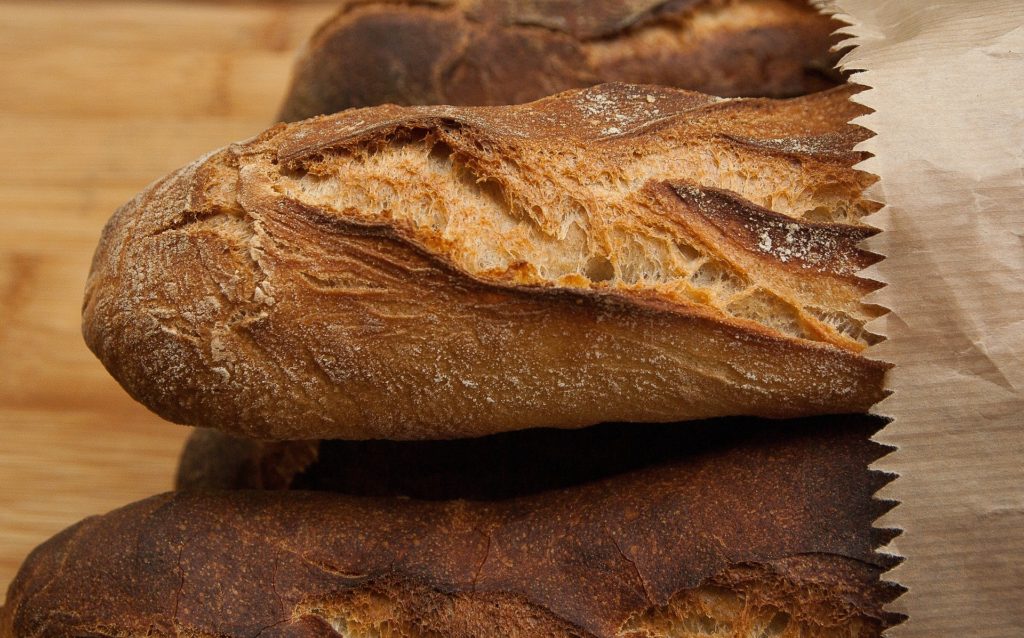Let’s explore the parable of the Leaven. It describes the growth of God’s Kingdom. From the addition of one small fermentation into the dough comes forth a great expansion, the Leaven. So is it with the Kingdom of God…

Matthew 13:33-34 (KJV)
33 Another parable spake he unto them; The kingdom of heaven is like unto leaven, which a woman took, and hid in three measures of meal, till the whole was leavened.
34 All these things spake Jesus unto the multitude in parables; and without a parable spake he not unto them:
Luke 13:20-21 (KJV)
20 And again he said, Whereunto shall I liken the kingdom of God?
21 It is like leaven, which a woman took and hid in three measures of meal, till the whole was leavened.
What is The Leaven?
In order to understand what Jesus is trying to convey we must understand a little more about the traditions of the time. When making bread it was customary to throw in a small piece of old dough into the new batch. This old fermented dough caused fermentation of the new dough, acting like yeast, prompting the new dough to rise.
Leaven In Scripture
There are many typical biblical examples where leaven is used to represent something unclean. Hence the direction not to eat leavened bread during certain Holy feasts. But in this particular parable it does not appear that is how Jesus is using the example of the leaven.
Leaven Describing God’s Kingdom
In fact his example in the parable of the leaven is quite the opposite. It is represented as a way to cause the bread to rise, and to express the measure of growth.
Jesus uses the parable of the Leaven to describe the Kingdom of God. So lets explore how this could be applied to the various aspects of the Kingdom.
Growth of God’s Message of Salvation

The Great Commission
Let the earth be filled with the knowledge of the Glory of God.
The message of salvation begins humbly in its infancy as the parable implies a small morsel of the fermented dough. It is spread from one to another. With it’s acceptance it is shared again to another, and then to another. It begins the mixing the kneading. As the unbeliever is embraced and the message is continued it begins the leavening. The message continues spreading.
As each new believer embraces the message he is but another morsel of fermented dough. Each new believer begins the mixing the kneading again. The leavening begins again. The message is spreading in all directions from the central point. It is spreading from a thousand central points, then from a million central points. For all to hear.
In this way there is no stopping the message. It ventures out of each corner extending in all directions. The message is soon known by all and extended to be embraced by all the world…
Such is the Kingdom of Heaven. Such is the Leaven.
Growth of the Understanding of Scripture

The Holy Spirit
As we study scripture with prayer and supplication our understanding begins on an elementary level. Like the small piece of fermented dough. It is a meager beginning.
But with time and dedication the understanding of the teachings begin to increase. As one scripture is compounded with another and another. A mixing of knowledge begins slowly, increasing with the help of the Holy Spirit divination and discernment of prayer.
With each new understanding the next scripture takes on a new meaning, then another and then another. Each new concept branching out causing the embrace of even more complex concepts.
The increase in knowledge intermingles to become a more comprehensive interpretation at an increased level of perception and the leavening begins…
Such is the Kingdom of Heaven. Such is the Leaven.
Defining God’s Kingdom
So what is Jesus referring to as the Kingdom of Heaven or the Kingdom of God? One popular interpretation is that currently the Kingdom is spiritual, existing in the hearts of believers. However, it becomes tangible when Jesus comes and reins on earth.
Jesus uses similar parables to also describe the Kingdom of God. For example the Wheat & Tares and The Mustard Seed both have a similar message. However, the parable of the Leaven appears to be lacking one key element of the others. There is no openly conceivable warning in the message.
Working in Tandem
- Kingdom of Heaven – Wheat and Tares – Matthew 13:24-30
- The Mustard Seed – Matthew 13:31-32
In Conclusion
So in conclusion, the parable of The Leaven is used to provide a simple concept. An understanding of the Kingdom of Heaven. It is the representation of a clear way to describe the bigger picture.
Something small and hidden rises to a much greater density and it’s expansion becomes as widespread as the Kingdom of God…

For the Love of God,
Sparks

